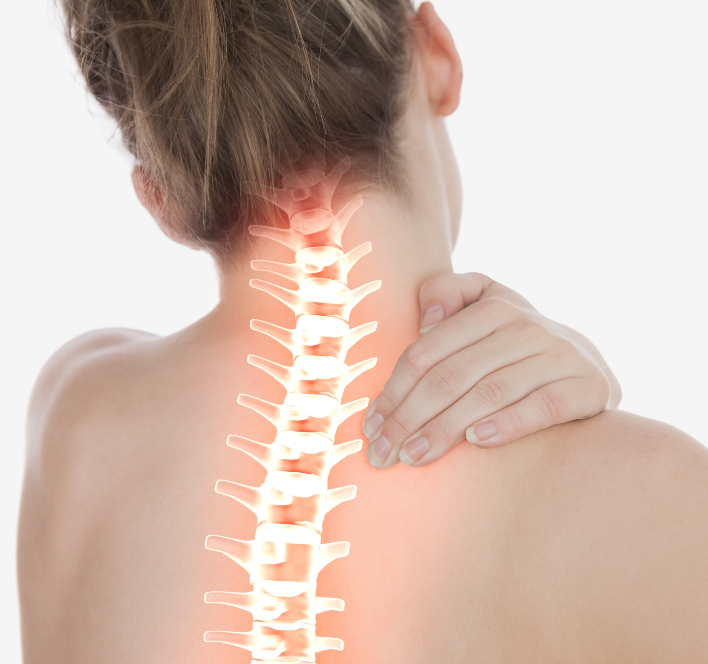Back and neck discomfort is a common complaint, but how do you know when it’s more than just a temporary ache? Your spine is central to nearly every movement you make, and when something isn’t…
A herniated disc is also called a ruptured or slipped disc, which can be very painful. The pain you experience from a herniated disc will depend on which nerve it presses on and how much pressure there is from the bulge in your spine.
A cervical herniated disc is a long-term condition that requires ongoing care, monitoring, and treatment to make sure it doesn’t continue to get worse over time. Cervical herniation can occur as a result of many different conditions or events. Several things can cause a herniated disc in the cervical spine:
What is a Herniated Cervical Disc?
A herniated disc is different from a standard disc. A normal disc has a thick outer wall and a soft, gel-like center. The gel-like center acts like a shock absorber and helps keep the spine flexible.
A herniated cervical disc occurs when the disc’s outer wall (the annulus) tears and the inner core (the nucleus) bulges out. This puts pressure on the spinal nerve, causing arm pain. A herniated disc can also compress the spinal cord, which can be very serious.
Most herniated discs happen in the spine’s lumbar (lower back) region, but a herniated cervical disc can occur in the neck. It is most likely to happen in people over age 30 who have had wear and tear on their discs from years of use.
Why Do Discs Herniate?
Disc herniation can happen for several reasons, including age-related wear and tear, sudden impact or injury, and repetitive stress. When a disc herniates, it can compress or pinch nearby nerves, causing numbness, pain, tingling, or weakness in the affected area. In some cases, a disc herniation can also cause cervical radiculopathy, which is a condition that results in pain, numbness, and weakness in the arms and hands.
What Causes a Cervical Herniated Disc?
The most common cause of a herniated disc is wear and tear on the discs, which can occur with aging. Disc disease, such as degenerative disc disease, is another common cause. A herniated disc in the cervical spine is less common than in the lower back, but it can be more severe because it can compress nerves that supply the arms and hands. Other causes of a cervical herniated disc include injury to the spine or neck, lifting something heavy, or sudden movements that stress the spine.
How Do Doctors Diagnose a Herniated Disc?
A herniated disc can be diagnosed using various methods, including a physical examination, MRI, and CT scan. The most common method is a physical examination, which can help to identify the location of the herniated disc and any associated symptoms. MRI and CT scans are also used to diagnose herniated discs, but they are less common than physical examinations.
Schedule an Appointment With a Spine Surgeon
Spinal discs play a critical role in supporting and protecting the spine. Both normal aging and various traumas can result in spinal disc degeneration, which may cause herniation of a disc. A herniated cervical disc can result in significant symptoms, including pain, numbness, tingling and weakness of one arm or both arms or hands.
If you’re suffering from neck pain, it is essential to get to the root cause. If you have experienced a herniated cervical disc, you can consult a spine surgeon for further treatment. Contact Orthopedic Laser Spine Surgery at (855) 853-6542 or fill out our online form to schedule an appointment with our team. We can evaluate your spine and develop a treatment plan.

